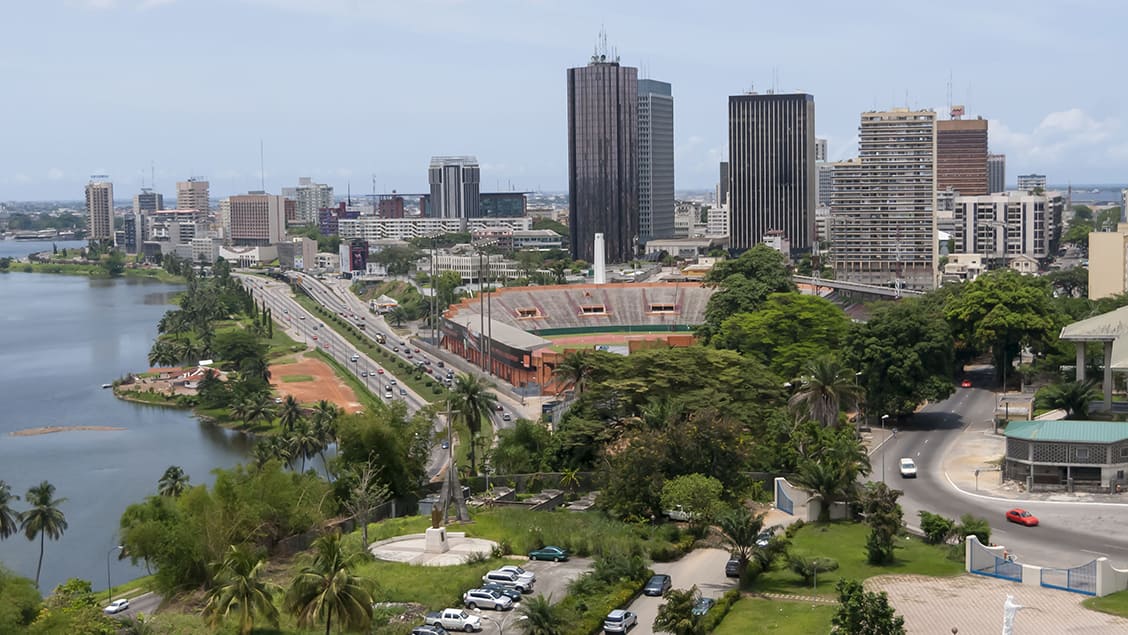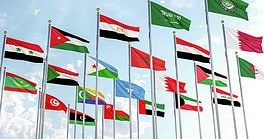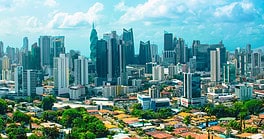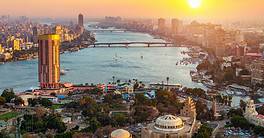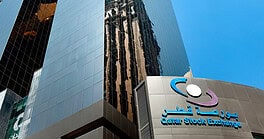The West African country looks to sustain growth based on rising productivity.
Côte d’Ivoire, the world’s top producer of cocoa and third-largest supplier of cashews, enters the new year with optimistic growth expectations. The World Bank projects a GDP growth rate of 6.5% in 2024 and 2025, while the International Monetary Fund (IMF) anticipates similar gains.
The World Bank adds that continued investment in network infrastructure, especially in the digital and transport sectors, as well as recent oil discoveries, alongside prudent macroeconomic policies, will boost business confidence and productivity in the country.
The outlook and expectations for the Ivorian economy in 2024 depend on political stability, economic reforms, and global conditions, according to Stéphane Eholie, founder and CEO of Ivorian transport and logistics company Societe Ivoirienne de Manutention et de Transit (Simat).
“The country is experiencing one of the fastest economic growth rates in sub-Saharan Africa,” he notes. “After the Covid-19 pandemic, the country has returned to strong growth and continues to have an important role as a regional economic hub.” Growth is expected to return to the pre-Covid era, when the economy achieved rates of up to 8%.
Yet, such expectations are subject to significant downside risks, mainly due to the Russia-Ukraine conflict, which has caused currency and inflation fluctuations.
Making Improvements
In a December 8 statement announcing a $300 million aid package, the World Bank noted that “limited competition in key sectors, such as transport, financial services, and telecom, hinders private sector investment.” The bank also notes a need “to improve service delivery and build human capital, reduce spatial disparities, and address environmental concerns, including coastal erosion and deforestation.”
| Vital Statistics |
| Location: West Africa |
| Neighbors: Liberia, Guinea, Mali, Burkina Faso, Ghana |
| Capital city: Yamoussoukro |
| Population (2023): 29.2 million |
| Official language: French |
| GDP per capita (2022): $2,486 |
| GDP growth (2023): 6.2% (projected) |
| Inflation (2022): 5.2% |
| Currency: West African CFA franc |
| Investment promotion agency: Center for the Promotion of Investment in Côte d’Ivoire |
| Investment incentives available: Foreign investment and the repatriation of funds are not restricted. |
| Corruption Perceptions Index rank (2022): 37 |
| Political risk: Possible failure of agreement between the ruling party and the opposition as the 2025 election approaches |
| Security risk: Terrorist and insurgent actions in the northern region; land conflicts near Liberian border; violent crime occurs regularly; ambushes on roads; weak judicial and security capacity |
| Political risks: Frustration over the weak economic situation; high inequality, with majority of population below poverty line; expected austerity measures; no history of large-scale political violence in the past three decades, peaceful transitions of power |
| Security risks: Expected social discontent as economy worsens; assaults and petty crime, including carjacking; landmines in areas bordering Angola, the DRC and Mozambique; accidents on poorly maintained roads; water supply shortages and power outages; illegal child labor, including human trafficking |
| PROS |
| Stable political environment |
| Constitution guarantees right to own property free from expropriation without compensation |
| Increased security before hosting 2024 African Football Cup |
| Leading cocoa producer and growing gold and oil production |
| CONS |
| Government may expropriate property with due compensation (fair market value) in cases of “public interest” |
| Poor enforcement of private property rights |
| Vulnerability to climate change |
| Limited business competition hinders investment |
| Possible public-spending decrease |
| Procedure to receive tax breaks time consuming and confusing, sometimes denied with little explanation—accusations of favoritism |
| Local-content requirements in oil and gas sector |
| Perceived corruption |
| Poor road safety with emergency rescue services limited or nonexistent |
| Sources: Allianz, Government of Canada Global Travel Advisory, Fitch Ratings, IMF, Moody’s, S&P, Statista, US State Department, World Bank, World Population Review |
Investments in infrastructure, increased storage capacity, the acquisition or operation of a terminal by a local company, and the “creation of national champions,” would strengthen the private sector’s confidence and stimulate productivity, says Simat’s Eholie. There must also be “relieved borrowing conditions for our businesses,” he stresses.
This was significantly boosted on December 6, when the board of directors of the African Development Bank (AfDB) approved two loans totaling €165 million (about $181.4 million) for Côte d’Ivoire. “The funding is intended for implementation of the Diversification, Industrial Acceleration, Competitiveness, and Employment Programme created under Côte d’Ivoire’s National Development Plan 2021-2025,” the AfDB said in a statement.
This funding is further intended to support “reforms and investments in the public assets needed to develop the private sector and to de-risk the financing of [small and midsize enterprises] and innovative startups,” AfDB explains.
Côte d’Ivoire is also set to fully join the league of African oil producers such as Nigeria, Angola, and Libya in the new year, as investment into its new Baleine offshore oilfield gathers momentum. The Italian oil company Eni is preparing to invest $10 billion into the Baleine field, which it discovered in 2021. It will develop the field in partnership with the state-owned oil company Petroci. The potential of this field is high, with estimates of its reserves ranging from 1.5 billion to 2.5 billion barrels of crude oil and more than 3,300 billion cubic feet of associated gas.
Until now, Côte d’Ivoire has been a modest producer of hydrocarbons, with around 30,000 barrels per day in 2023. But by 2027, during the third phase of development of the deposit, located in deep waters, Côte d’Ivoire is expected to increase production to around 150,000-200,000 barrels of oil per day.
Fueling Growth
Ivorian authorities have come into the new year with strong backing from the World Bank and the IMF to help implement the country’s strategic plans. The National Development Plan aims to implement strategic reforms to help Côte d’Ivoire attain the status of an upper-middle-income economy by 2030.
Besides the $300 million the World Bank has dedicated to accelerating the country’s economic growth, the IMF also announced immediate access to approximately $495 million under a 40-month extended credit facility and extended fund facility (ECF/EFF) arrangement.
These figures are quite modest compared to the level of activity in that country, according to Ernest Achonu, a Nigerian former staff member of the AfDB, in Abidjan, the Ivorian business capital. “The country may need more. It is a country that can handle more resources, but it is a country that is also cautious in its approach in every way,” he says.
The World Bank explains that the $300 million, its second support in a three-part series, focuses on three major reform areas. First: “fostering competition in critical sectors and boosting domestic revenue mobilization.” The reforms “target improvements in sectoral competition policies and regulatory frameworks, particularly in network sectors.”
Second: “expanding equitable access to health and education services, improving the quality of basic education, addressing skills mismatches in labor markets, and advocating for inclusive health insurance.”
Finally: “promoting sustainable natural resource utilization, encompassing sustainable cocoa production and forest conservation, while reinforcing environmental regulatory frameworks.”
“Continued fiscal consolidation envisaged in the 2024 budget will be underpinned by high-quality and permanent tax policy measures, as well as tax and customs administration reforms. These will support reaching the [West African Economic and Monetary Union] deficit target of 3% of GDP by 2025 and reduce the country’s debt sustainability risks,” says the IMF in its December 4 statement assessing the ECF/EFF arrangement.
Meanwhile, several foreign companies operate in various sectors of the economy. Cargill, the global agricultural industry leader, operates cocoa processing facilities in the country, the largest producer of this commodity. In 2021, it completed a $100 million expansion of cocoa processing facilities in Yopougon.
Olam Group, the international food and agribusiness company, also operates in the country, sourcing cocoa, rubber, cashews, and cotton, among other commodities. TotalEnergies is the nation’s largest retailer of petroleum products. Recently, it acquired an offshore license and has begun exploration and production activities. Similarly, Vivo Energy, a Shell brand, has been in the country since 1927.
Others include Societe Generale, the French multinational investment bank and financial services company; Orange, a French international telecom company; and Unilever, a British global consumer goods company.
Furthering Stability
The country’s political stability has been tested by Jihadist strife in the northern region bordering Burkina Faso, which has led to the displacement of locals and the creation of humanitarian challenges.
In 2025, Côte d’Ivoire returns to the presidential polls, which will test whether the nation can avoid the tumult of the 2020 election, which was boycotted by leading opposition figures.
“There is no problem. Ivorians have had enough of problems,” says Achonu. “With the level of development going on in the country, the people are happy.”
